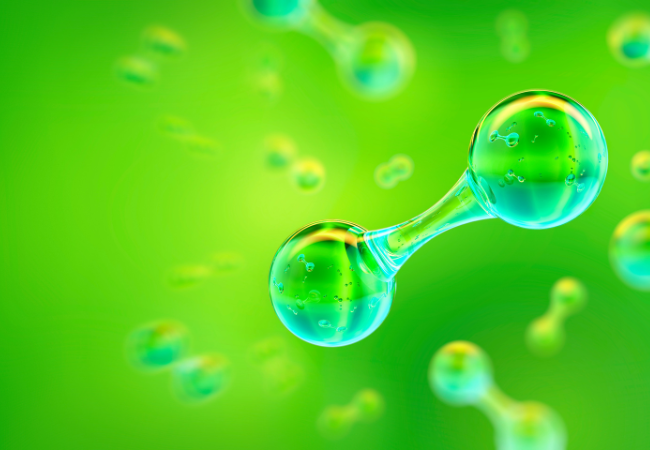- APA Group and Wesfarmers Chemicals, Energy and Fertilisers (WesCEF) sign a memorandum of understanding (MoU) to undertake pre-feasibility study to assess the viability to produce and transport green hydrogen via APA’s Parmelia Gas Pipeline.
- This pre-feasibility study builds on work already undertaken by APA Group to test the Parmelia Gas Pipeline for hydrogen compatibility – early test results indicate that the pipeline will be suitable for 100 per cent hydrogen service without any requirement to reduce the operating pressure of the pipeline.
- The study is aligned with WesCEF’s net zero goals to decarbonise its operations and explore
sustainable growth opportunities.
Leading Australian energy infrastructure business APA Group and Wesfarmers Chemicals, Energy and Fertilisers (WesCEF) will investigate the opportunity to produce and transport green hydrogen to WesCEF’s production facilities in Kwinana.
If successful, green hydrogen could facilitate the production of green ammonia and other sustainable chemicals, and take a section of APA’s Parmelia Gas Pipeline a step closer to becoming a pure renewable hydrogen service.
Under the MoU, the pre-feasibility will be jointly funded and will assess the viability of green hydrogen production and transportation by APA’s Parmelia Gas Pipeline to WesCEF’s production facilities in the Kwinana industrial area.
This study follows world leading hydrogen research that APA commenced last year to test the ability of 43- kilometres of Parmelia Gas Pipeline to carry up to 100 per cent hydrogen.
“We are pleased to be working with WesCEF in this ground breaking project to investigate the viability of converting a section of our Parmelia Gas Pipeline transmission pipeline into a 100 per cent green hydrogen service,” APA CEO and Managing Director Rob Wheals said.
“This study could be a game-changer for the transportation of green hydrogen by supporting Australia’s first potential conversion of a natural gas transmission pipeline to 100 per cent hydrogen-ready.
“Hydrogen won’t be delivered at scale through trucks and trains – we will need large scale interconnected networks which can bring the benefit of resources to our industry hubs, cities and homes.”
WesCEF, a division of Wesfarmers, comprises nine industrial businesses that operate in domestic, national and international markets. WesCEF businesses include CSBP Chemicals and Fertilisers, which has a 110-year operating history in WA and natural gas provider Kleenheat, which is WA’s largest LPG and LNG retailer.
The WesCEF production facilities in Kwinana produce and distribute essential products for the agricultural, mining, construction and manufacturing industries and energy for households for cooking, heating and hot water.
WesCEF Managing Director Ian Hansen said he is pleased to be partnering with APA in this study which could fundamentally change the economics of green hydrogen in the Kwinana area.
“WesCEF has a successful history in decarbonising its operations, achieving a 40 per cent reduction in emissions during the first phase of its decarbonisation journey. Projects like this can unlock further reductions in emissions,” Mr Hansen said.
“WesCEF sees partnerships with industry leading organisations like APA as critical to delivering on its recently announced target of net zero emissions by 2050. We see collaboration as fundamental to unlocking decarbonisation opportunities across our value chains.”
The results from APA’s first phase of testing on the Parmelia Gas Pipeline are proving to be promising after they were validated through comparative testing by a world-renowned independent laboratory.
“Importantly, this international peer review suggests the 43-kilometre section of the Parmelia Gas Pipeline is suitable to be converted to be a 100 per cent hydrogen service without any requirement to reduce the operating pressure of the pipeline,” Mr Wheals said.
“While receiving international validation is hugely exciting and promising we still need to complete the second phase of pressurised hydrogen testing over the next 12 months, in Australia, to provide additional confidence of the service performance and allow detailed safety studies and conversion plans to be developed.
“Existing gas infrastructure is not just essential to powering the nation today but it will also be essential to the delivery of clean molecules which are likely to be critical additions to our future energy mix. Just as electrons are turning from black to green, overtime, we have the opportunity to change the colour of gas molecules from brown or grey to blue or green.”
Phase two testing, which is supported by $300,000 of grant funding from the Western Australian government, is currently underway and involves testing the pipeline material in a gaseous hydrogen environment and comparing the pipeline material performance against the results from phase one and the international research.
The testing is being carried out at the University of Wollongong, in partnership with the Future Fuels Cooperative Research Centre, in a state-of-the-art testing lab – which is the first lab of its kind in Australia.
APA’s support for the development of a hydrogen industry is an important plank in our ambition for net zero operations emissions by 2050.
APA is also a signatory of the Methane Guiding Principles, a voluntary, international partnership between industry and non-industry organisations. Signatories are focused on the reduction in methane emissions in priority areas for action across the natural gas supply chain, from production to the final consumer.

